
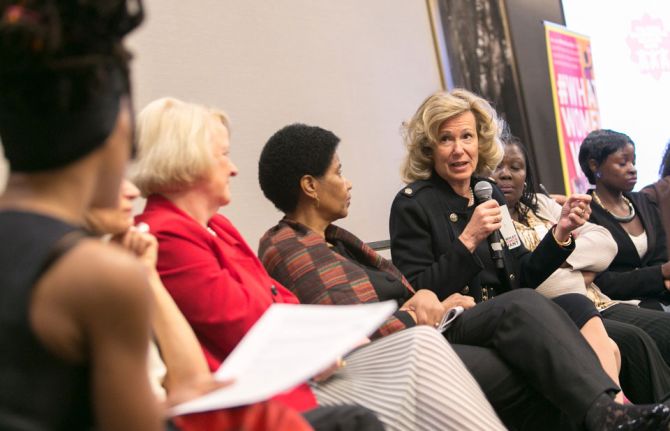
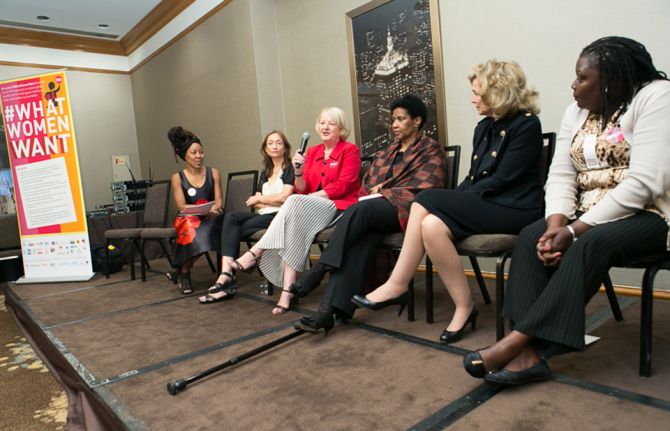
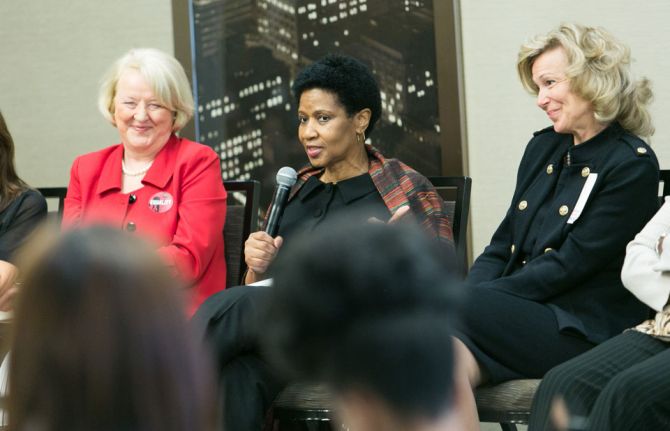
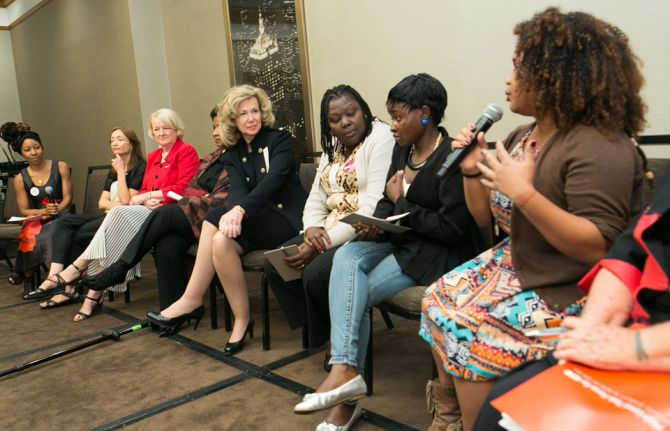
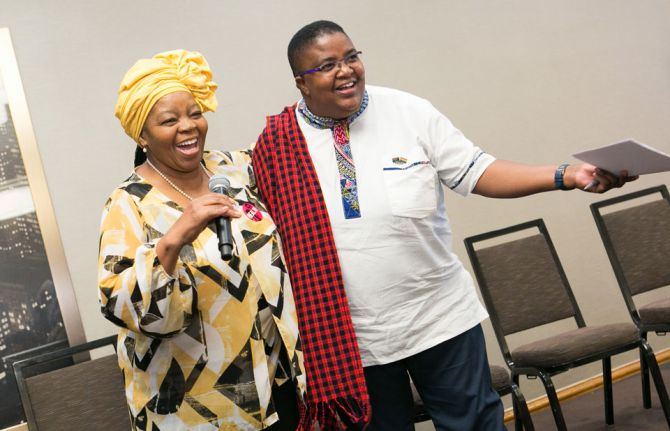
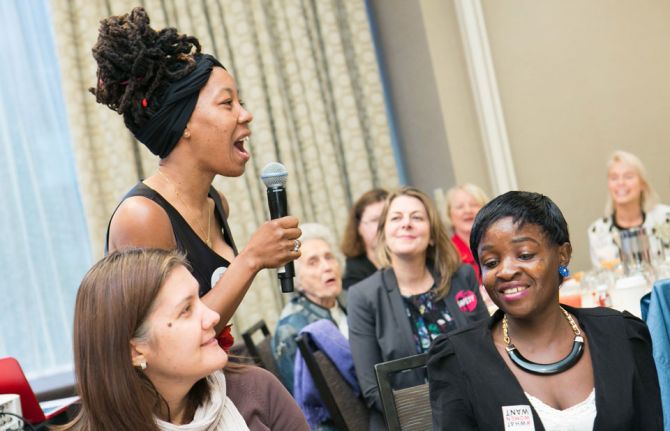
Update
Global HIV advocates gather to discuss #whatwomenwant in the next phase of the response to HIV
10 June 2016
10 June 2016 10 June 2016On 10 June, the last day of the United Nations General Assembly High-Level Meeting on Ending AIDS, held from 8 to 10 June in New York, United States of America, representatives of United Nations and women-led civil society organizations, young women and government leaders and women living with and affected by HIV, came together to inspire and move forward the role of women in the response to AIDS.
The breakfast event, entitled “#whatwomenwant”, was supported by UNAIDS and other partners and led by the ATHENA Network which represents 60 civil society partners from 25 countries dedicated to advancing gender equity and human rights in the global AIDS response.
The event was the culmination of a week of advocacy activities organised in the lead-up to the High-Level Meeting on Ending AIDS. Athena hosted a large-scale, coordinated Twitter campaign called #WhatWomenWant and led a global consultation to hear what women want and identify the specific key actions needed to leverage a sea change in the AIDS response for women and girls.
Young leaders from Africa, the Caribbean, Latin America, and Eastern Europe called for building bridges across movements, sectors and leaders. They emphasised the interconnectedness between HIV and broader women’s issues, such as child marriage and gender-based violence. They also called for meaningful places at decision-making tables and women-centered and women-led research and innovation.
In a lively session, participants shared personal views on the progress made to date and their views on what it would take to empower women and reach the goals of the 2016 Political Declaration on Ending AIDS by 2030. They explored options for stronger coordination and joint leadership to support women-led organizations and strengthen young women’s leadership in the HIV movement and beyond.
The Political Declaration strongly recognizes the importance of advancing gender equality and women’s empowerment as a human right and as critical to ending AIDS. This global political commitment is an unprecedented opportunity to focus on the specific vulnerabilities of young women and girls in all regions and to bring affected women to the centre of the agenda.
The new UNAIDS Strategy (2016-2020) is another example where commitments to gender transformative responses for human rights and gender equality have been centrally positioned. In order to meet the UNAIDS targets and the demands of what women want, sustained advocacy and accountability are essential.
The event concluded by calling for commitments to invest in young women’s leadership in order to bring sustainable change to the response to HIV.
Quotes
“The new Political Declaration on HIV and AIDS includes a significant focus on women and girls and acknowledges the interconnectedness of HIV with gender inequality, the empowerment of women, sexual and reproductive health and rights and gender-based violence. We need to invest in women and girls, especially adolescents, and give them space to have a voice globally, nationally and in the community and the family.”
“When a woman is criticized for not asking permission and for being vocal, we have to call it out every time. We need to stand up for each other. The United States Government is working hard to reach women and girls in new ways. Are we there yet? Not even close. But we are absolutely committed to getting the whole way there.”
“We need to expand the network of people who care and do. We need to work with men to talk about what masculinity is all about and how to live it. All of these things require risks. And if you don’t take risks, you don’t break ground.”
Women want love, hope, mental health, protection and to speak out and not be afraid and not have to ask permission. We are starting a revolution”
“When we talk about our stories, we are talking about where we have been and where we want to go. We must use every situation that comes our way to guide our girls to have them take up, come up and be who they want to be.”



